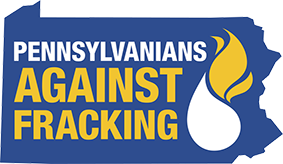FOR IMMEDIATE RELEASE
September 26, 2016
Contact: Tracy Carluccio, Pennsylvanians Against Fracking, 215-369-1188 x104
Karen Feridun, Pennsylvanians Against Fracking, 610-678-7726
New Report: Under Clean Power Plan, Natural Gas Consumption in PA Will Increase By Estimated 72% by 2030 if All Approved Power Plants Are Built
Demonstrates PA’s Refusal to Replace Greenhouse Gas-Emitting Energy Sources with Renewables
Pennsylvania – Today, Pennsylvanians Against Fracking released a statement revealing that given Pennsylvania’s plan to generate electricity through a rash of new natural gas power plants, greenhouse gas emissions will substantially increase, causing the state to fail to meet federally mandated emissions reductions. This violation, in turn, will undermine global climate warming limits for the United States and those set by COP21 in Paris.
If all of the approved 40+ natural gas power plant projects are built, natural gas consumption in the state’s power sector will increase by an estimated 72% by 2030. The 38 new plants and three expansions considered in the analysis are all of those constructed after January 8, 2014, making them eligible for exclusion from the Clean Power Plan, thanks to a loophole that means they may be omitted in the determination of emissions and go on to warm the climate without regulation.
In light of the EPA-mandated 23% reduction in CO2 stack emissions in Pennsylvania by 2030, the 72% increase in the use of natural gas as an energy source is a blatant undercutting of clean power planning and will make it impossible to meet required climate goals. Life cycle emissions from these natural gas power plants will be even worse, as stack emissions do not include emissions associated with the manufacture of materials for the construction of new power plants or fuel infrastructure, as well as fugitive and combustion emissions associated with extraction, processing, and transport of the fuel source. These are known as upstream emissions, and they make up roughly half the total lifecycle emissions (upstream + stack emissions) and can quickly erode any climate benefits achieved in reducing stack emissions.
If the federal stack emissions reduction goal is applied to life cycle emissions, Pennsylvania will fail to meet net emissions reduction for the State’s power sector by 15%, achieving only an unacceptable 8% reduction. Once online, the additional projects will have an annual lifecycle carbon dioxide equivalents (CO2e) emissions burden of 126.6 million metric tonnes (MMt) by 2030, which will be more than half the 2012 total lifecycle emissions from the state’s power sector (231.5 MMt CO2e), even after factoring in a reasonably achievable 62% reduction in coal consumption. The annual carbon equivalent emissions in 2030 from the full life cycle of these new gas plants would be comparable to the consumption of gas by 27.2 million light duty vehicles, more than four times what is emitted annually by the cars on the road in Los Angeles.
“This failure amounts to a refusal on the part of Pennsylvania to participate in the national agreement to replace greenhouse gas-emitting energy sources with renewables,” said Tracy Carluccio, Deputy Director of Delaware Riverkeeper Network and Steering Committee Member of Pennsylvanians Against Fracking. “It puts Governor Wolf’s Administration at odds with the Obama Administration’s agreement with COP21 to limit additional global warming to 2 degree C.”
Pennsylvanians Against Fracking has been addressing the issues with the Clean Power Plan in a series of statements.
The coalition’s fourth statement “Pennsylvania’s Failure to Produce Clean Power: Global Warming from Natural Gas, released today, reads that Pennsylvania must choose a path of “renewable energy sources and energy efficiency measures to meet power generation with no new fossil fuel plants if the goal is to really reduce greenhouse gas emissions and curb climate change.”
A full copy of the statement can be found here: bit.ly/PAFCPP4
Members of Pennsylvanians Against Fracking Steering Committee are available for interviews and comments on this report.
###
About Pennsylvanians Against Fracking
Pennsylvanians Against Fracking is a statewide coalition of organizations, institutions, and businesses calling for a halt to fracking in the Commonwealth. Steering Committee member organizations include Berks Gas Truth, Delaware Riverkeeper Network, Food & Water Watch, Marcellus Outreach Butler, Marcellus Protest, Pennsylvania Alliance for Clean Water and Air, and Thomas Merton Center. Learn more about Pennsylvanians Against Fracking at paagainstfracking.org.






could we pour PA legislators down a fracking waste hole?
Sarah
[email protected]